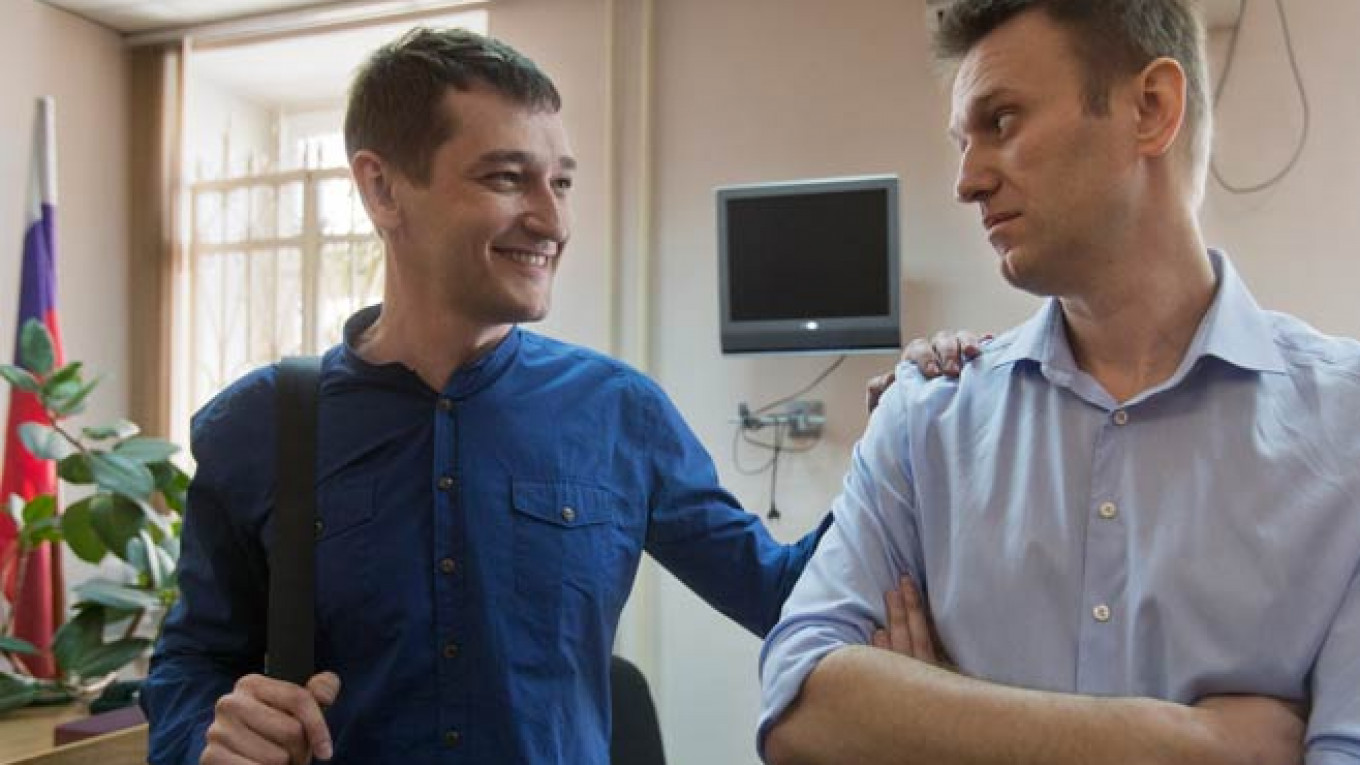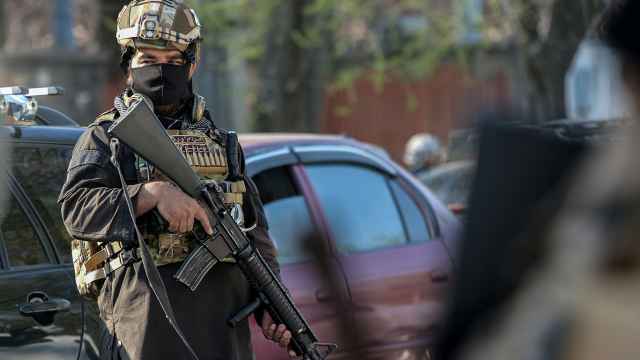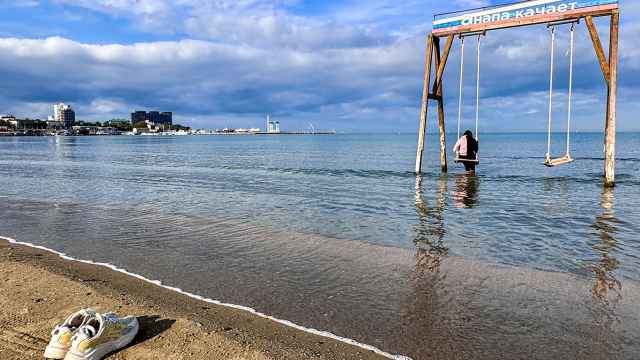A Moscow court on Thursday extended opposition leader Alexei Navalny's house arrest for another six months in a high-profile fraud case widely believed to be politically motivated.
The ruling came at the first hearing by the Zamoskvoretsky Court in a case opened after French cosmetics company Yves Rocher complained that a company tied to Navalny and his brother had defrauded the firm of 27 million rubles ($750,000).
Earlier this week, Navalny said the company's initial accusation against him — which served as the basis for the case being opened — had been withdrawn, posting on his blog a scanned copy of a letter purportedly from Yves Rocher to the Investigative Committee in which the company retracted its initial claim.
Navalny said on his blog that by posting the letter, he was intentionally breaking a ban imposed on him by the Investigative Committee, which prohibited him from commenting on the Yves Rocher case under the terms of his house arrest.
The ban was put in place in order to prevent him from announcing that the main basis for the case had been rendered null and void, he said.
Neither the letter nor Navalny's defiance of the ban seemed to sway the court's ruling, though the court did reject a motion by prosecutors to transfer Navalny to a detention facility.
Apart from Yves Rocher, another company, MPK, had also filed a complaint against the Glavpodpiska company linked to Navalny and his brother Oleg.
The Yves Rocher case is widely seen as the latest step against Navalny in an ongoing campaign of political persecution after he was earlier sentenced to a five-year suspended prison term for allegedly stealing 16 million rubles ($448,179) from KirovLes, a state-owned timber company.
Yves Rocher could not be reached by telephone or e-mail on Thursday.
In the letter, the authenticity of which could not immediately be verified, Yves Rocher said that Glavpodpiska had provided services at prices that were lower than those of many competitors and denied that the company had incurred any damages.
The original complaint for the case said Glavpodpiska had defrauded the cosmetics giant of 27 million rubles ($750,000).
The case was opened against the Navalny brothers in 2012, with investigators accusing Glavpodpiska of defrauding Yves Rocher by providing freight transportation services at above-market prices.
The opposition leader has denied both that he had been involved in Glavpodpiska's activities and that the company had committed any crimes.
Leonid Volkov, a leader of Navalny's Progress Party, wrote on Twitter that Yves Rocher had not actually withdrawn its formal complaint against Glavpodpiska despite sending the letter to the Investigative Committee.
Cyprus-based Altorag Management Limited, which was co-founded by Navalny, holds 99 percent in Glavpodpiska, while Leonid Zaprudsky, reportedly an acquaintance of the politician, owns 1 percent, according to the Unified State Register of Legal Entities.
Stanislav Belkovsky, head of the National Strategy Institute, said the case was part of an effort to smear Navalny's reputation and impede his activities, but that authorities had not been aiming to jail Navalny.
“The authorities' strategy is to turn criminal cases against Navalny into routine,” Belkovsky said.
The court is expected to issue a guilty verdict in the Yves Rocher case regardless of whether or not the complaint was withdrawn, Belkovsky said, adding, however, that it was unlikely to be harsh.
In another case against Navalny, Moscow's Lyublinsky Court on Thursday upheld a libel lawsuit filed by Sergei Neverov of United Russia, a deputy speaker of the State Duma.
The court required Navalny to retract a statement he made in September 2013 saying that Neverov had failed to declare a 90 million ruble ($2.5 million), 614-square-meter land plot in the Moscow region. The land plot formally belongs to Neverov's mother-in-law, Navalny said.
Read more:
Navalny Ordered Under House Arrest
Contact the author at o.sukhov@imedia.ru
A Message from The Moscow Times:
Dear readers,
We are facing unprecedented challenges. Russia's Prosecutor General's Office has designated The Moscow Times as an "undesirable" organization, criminalizing our work and putting our staff at risk of prosecution. This follows our earlier unjust labeling as a "foreign agent."
These actions are direct attempts to silence independent journalism in Russia. The authorities claim our work "discredits the decisions of the Russian leadership." We see things differently: we strive to provide accurate, unbiased reporting on Russia.
We, the journalists of The Moscow Times, refuse to be silenced. But to continue our work, we need your help.
Your support, no matter how small, makes a world of difference. If you can, please support us monthly starting from just $2. It's quick to set up, and every contribution makes a significant impact.
By supporting The Moscow Times, you're defending open, independent journalism in the face of repression. Thank you for standing with us.
Remind me later.






